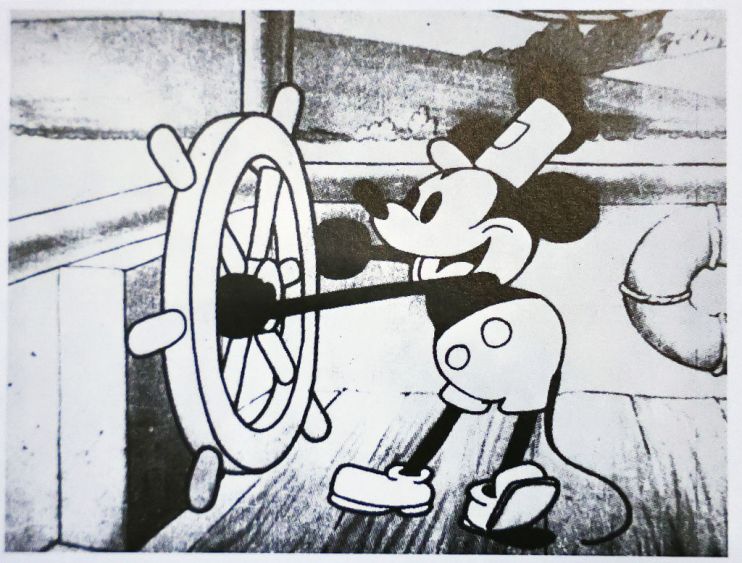Slasher film takes the Mickey out of Disney’s hard-earned copyright

With Disney having just lost its Mickey Mouse copyright, Nicolas Loufrani argues why intellectual property rights are key to supporting creativity
When you visualise Mickey Mouse, what comes to mind? Whether it’s the famous red shoes, memories of a visit to a Disney theme park or something else, it likely wasn’t the cartoon’s role in a violent horror film. But that, believe it or not, is precisely what has happened following the expiration of the original 1928 Steamboat Willie copyright, the first time Mickey appeared on screen. Now, with unrestrained access to the character, creators have seized the opportunity, unleashing a slasher horror film and knock-off video games featuring the beloved mouse.
This initial design catalysed a highly valuable asset for Disney, marking the onset of the golden age of American animation, paving the way for its status as the multinational entertainment conglomerate we know today.
However, Mickey Mouse’s true value is derived from its protections under intellectual property (IP) law. These legal mechanisms formally acknowledge ownership of a distinctive sign, design or expression. Whether as a trademark or copyright, these are very valuable assets for a company and we all benefit from their exploitation, not only through quality products and content, but also through employment and growth.
The primary aim of safeguarding IP is to shield the public from deceptive, unauthorised or unlawful use of images and designs that carry recognisable brand values and personalities. The potential confusion stemming from the lapse of the Mickey copyright might result in others compromising the integrity of the entire carefully curated creation.
Instead, copyright law (prohibiting unauthorised copy) should be aligned more closely with trademark law (protecting consumers from confusion on the source of a good or service) in cases where a character, protected under copyright, transforms into a brand. Consider the Michelin Bibendum trademark, renowned for its unique character made of pneumatics and commonly associated with ‘happiness’ and ‘travel’. Rather, the Steamboat Willie copyright has evolved into an entertainment brand through its trademark protection.
Trademark law can also be strengthened to prevail over copyright termination when it signifies sustained investment across various forms (books, cartoons, music, etc) to become an entertainment franchise.
We should not let Disney lose the rights to a creative vision forged through 95 years of creative investment. In a more abstract sense, Disney stands to lose not only consumer recognition and product quality, but also some of the emotional triggers associated with the brand – some of the escapism that many call the ‘Disney magic’.
Compounding the issue, it’s not a fifth-generation family member relinquishing the royalties to a book, but a commercial entity who has invested continuously with passion into the talent of countless people to build an entertainment franchise that consumers will continue to identify as coming from Disney.
The opponents of longer copyright protection will say that Disney benefited from public domain works like Snow White. Yet, it wasn’t the Brothers Grimm who invested in later iterations over many years.
In 1972, my father conceived, and then protected, a simple logo – an image of a happy face as part of a French feel-good news campaign. This logo birthed The Smiley Company which – while not quite Mickey Mouse level – has become ingrained in cultural movements, fashion and design, and is set to feature in its first cartoon. It’s a brand which like all successful commercial enterprises requires passion, risk taking and lots of hard work to build!
The arbitrary expiration of copyright ownership can, in certain instances, compromise the integrity of IP law. To enhance protection, we must update laws to align trademarks and copyrights for qualifying corporations investing in their development. Prioritising commercial rights and consumer protection outweighs the notion of expanding the public domain. This holds little benefit for modern capitalist societies where the role of the state is to protect property, be it industrial, intellectual or private – if not to retain a touch of that Disney magic.
Nicolas Loufrani is the CEO of The Smiley Company